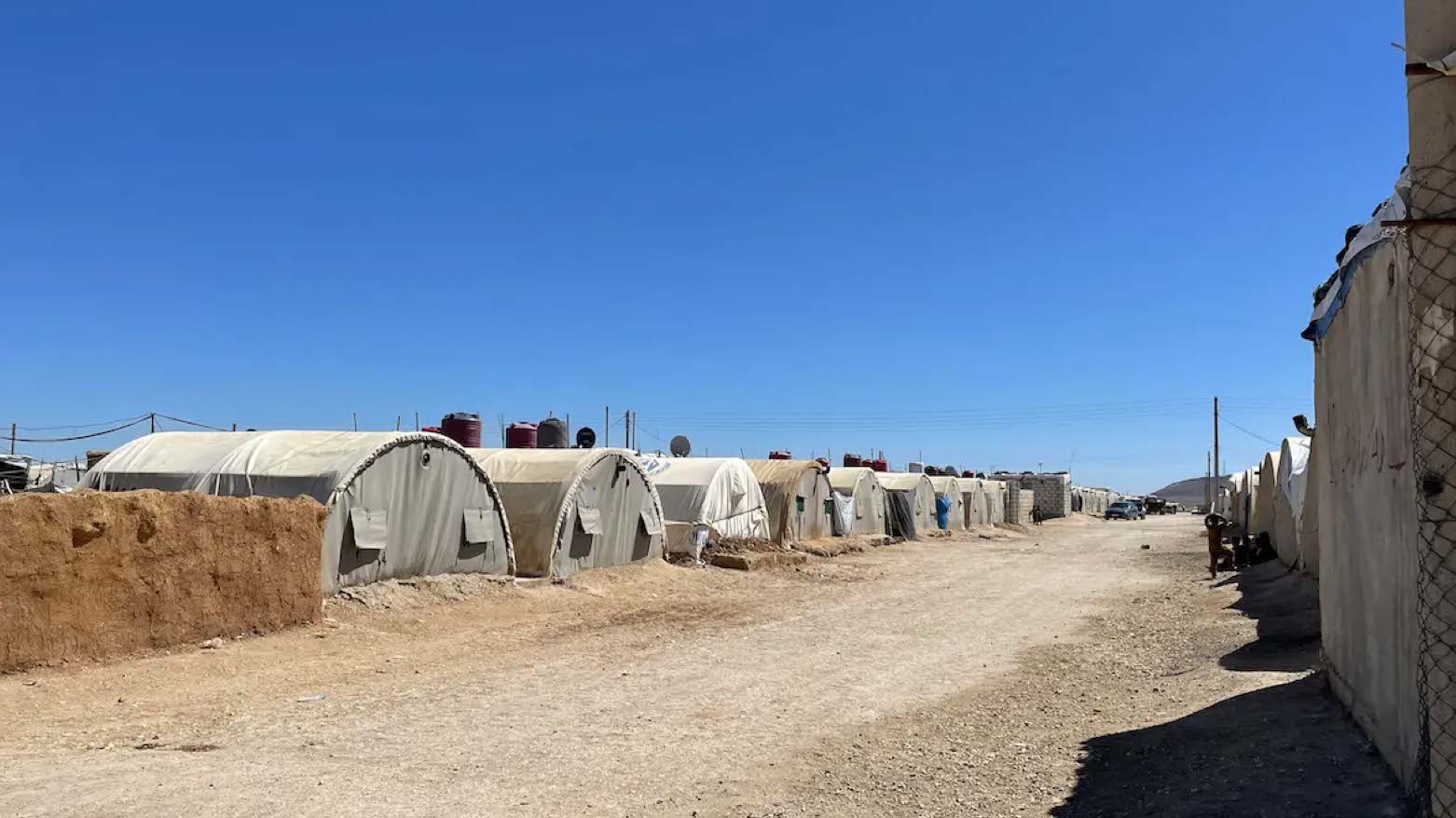Thousands of IDPs in northeast Syria are not receiving adequate aid: HRW

ERBIL (Kurdistan 24) – Tens of thousands of persons in northeast Syria displaced by Turkey’s 2019 military incursion are not receiving sustained or adequate aid, thereby negatively impacting their basic rights, Human Rights Watch (HRW) reported on Tuesday.
HRW said there is an urgent need for weather-appropriate shelter, sufficient sanitation, adequate access to food, clean drinking water, health care, and education.
Moreover, the New York-based human rights organization said that the assistance provided by UN agencies to camps and shelters in territories governed by the Autonomous Administration of North and East Syria (AANES) is inconsistent, leaving some camps and shelters, especially the “informal” ones, without sufficient or sustained aid.
It warned that although international nongovernmental organizations (NGOs) provide limited assistance, multiple gaps have led to health and hygiene breakdowns and shortages in essential materials during extremely hot and cold weather in the camps.
Moreover, this has led to concerns as to whether the current level of aid ensures the economic and social rights of the displaced people and meets the universal minimum standards for humanitarian assistance.
“Almost four years have passed since hundreds of thousands of people arrived in Kurdish-controlled northeast Syria seeking shelter and support after Turkey’s invasion of their hometowns,” said Adam Coogle, deputy Middle East director at Human Rights Watch. “But the lack of adequate help has created a precarious situation.”
The UN, other aid agencies, and the autonomous administration should urgently turn their attention to the precarious humanitarian situation unfolding in informal camps and collective shelters by prioritizing a rights-based approach, Human Rights Watch said.
The HRW also said that the underserved camps are at max capacity and forced to turn newly displaced Syrians away.
Read More: PHOTOS: Camp for families displaced by Turkish assault on Syrian Kurds
1000s of displaced families in northeast Syria are living in precarious conditions without sustained aid for over 4 years now. Clean water, sanitation, healthcare are scarce commodities. Immediate attention to this ongoing crisis is necessary.
— Hiba Zayadin (@ZayadinH) August 22, 2023
<Thread>https://t.co/1wy4oxzyaG pic.twitter.com/GTIzojWH8Z
“UN aid to camps and shelters in the region is inconsistent, leaving some, especially ones established following Turkey's 2019 invasion to accommodate the large influx of displaced Syrians, severely underserved,” Hiba Zayadin, senior HRW researcher in the Middle East and North Africa Division, posted on the social media platform X, formerly known as Twitter.
“NGOs provide limited assistance, [and] serious gaps in service exist.”
Three of the informal camps were established following Turkey’s 2019 military incursion into the region that drove hundreds of thousands of people away from their homes, and displacement continues by ongoing hostilities between Turkish-backed forces and the Syrian Democratic Forces (SDF).
Among these camps, the Washokani camp located near Hasakah accommodates approximately 15,820 individuals, as reported by the humanitarian initiative Reach last year.
Of the thousands of civilians, most of them are from the Syrian city of Serekaniye (Ras al-Ain in Arabic).
The towns of Tal Abyad and Serekaniye (Ras al-Ain) were occupied by the Turkish army and affiliated forces in Oct. 2019 after a major offensive against the SDF.
The Turkish military attack was put on hold after the US and Russia struck separate deals with Turkey to allow the withdrawal of SDF forces from Serekaniye.
